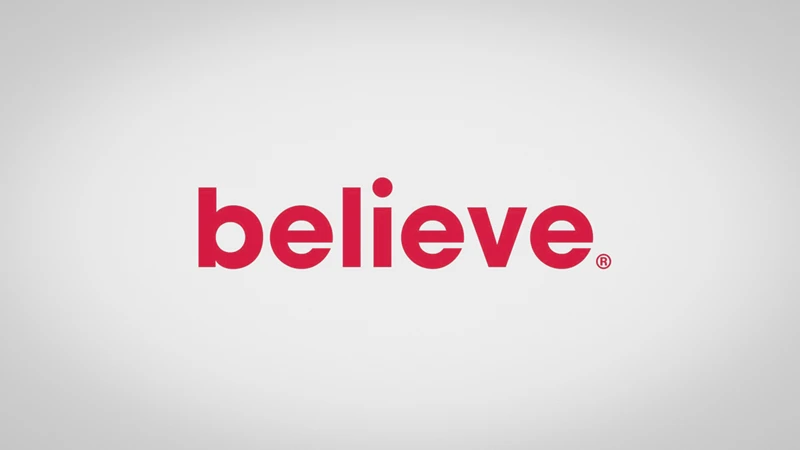
According to details confirmed by the major label over the weekend, Warner Music Group won’t be acquiring Believe after all.
Warner Music Group is saying ‘no thanks’ to an acquisition of Believe, according to a statement shared early Saturday morning (April 6th).
In a press release issued by the major label, WMG confirmed that “after careful consideration, it has decided not to submit a binding offer for Believe.” The statement continues: “WMG thanks the Ad Hoc Committee and Believe’s leadership team for their time and cooperation, and wishes the company every success in future.”
The decision follows a multi-week acquisition dance that pitted Warner against a consortium of Believe stakeholders aiming to take the company private. That latter group is helmed by company CEO and founder Denis Ladegaillerie, alongside other participants like EQT and TCV.
Shortly after Warner Music Group’s decision, Believe’s ‘Ad-Hoc Committee’ acknowledged the pullback in an email to Digital Music News.
“The Ad-Hoc Committee of Believe has taken note of Warner Music Group’s decision not to submit a binding offer for a combination with Believe (“WMG”), as set out in Warner Music Group’s press release of earlier today,” the Committee emailed.
“The Ad-Hoc Committee will review the situation with all interested parties (including the Consortium composed of EQT, TCV and Mr. Denis Ladegaillerie, as well as the historical shareholders of Believe to determine next steps in relation to the possible evolution of the Company’s control and will inform the market accordingly.”
The Ad Hoc Committee comprises Believe board members who are unaffiliated with the ongoing acquisition attempts by Denis Ladegaillerie, the CEO and founder of Believe, in collaboration with EQT and TCV. The response suggests that ‘Plan A’ is likely to move forward, with WMG’s pullback paving the way for the original acquisition by the Ladegaillerie alliance.
Earlier in February, Ladegaillerie’s consortium offered €15 (approximately $16.35 USD at current exchange rates) per share, valuing Believe at about $1.6 billion USD. The group had finalized a deal to acquire a 71.92% stake in the company through ‘Block Acquisitions.’
Warner Music Group’s potential acquisition had sparked debate, with some industry players fearing a negative impact on independent music. Others eyed a highly strategic move for WMG.
Last month, news surfaced about WMG entering a bidding war with a consortium for Believe. After a period of negotiation regarding the fair price, WMG was finally granted permission to submit a formal bid. It should be noted that Believe’s share price has also seen a significant rise since the beginning of the year, reflecting the ongoing interest in the company.
As of April 6th, shares of Believe SA (trading as BLV on Euronext Paris) were trading at €16.50, up nearly 60% year-to-date.
Protests, particularly within the independent music sector, quickly emerged. The French Union of Independent Phonographic Producers (UPFI) and the Association of Independent Musicians (AIM) both voiced their opposition to the acquisition attempt. Their primary fear was that this acquisition would stifle competition and hinder investment in new and upcoming musical talents.
The French Union took things a step further, urging the French government to intervene and prevent the acquisition from happening.
The dust-up kicked off when Believe’s CEO and founder, Denis Ladegaillerie, first cobbled together the capital and consortium to take the company private.
As mentioned earlier, Ladegaillerie offered to buy back most of the shares at €15 per share, though Warner Music’s rumored offer of €17 per share sounded more enticing. That stirred a tizzy of pushback from the consortium, which aimed to scuttle Warner’s advance and even outright block the attempt.
Believe positions itself as a global partner for independent artists and labels, offering a broad suite of career development services.
The company’s foundation remains in digital distribution across major streaming platforms and social media channels, though Believe touts a diversified suite of offerings. Beyond distribution, Believe provides ‘Label & Artist Solutions’ encompassing marketing, promotion, funding, and global expansion strategies. Established artists can access tailored ‘Premium Solutions’ for more complex needs.
Believe notes that technology drives its operations, with automation streamlining distribution, royalty management, and data analytics. The company also says it prioritizes artist independence, ensuring greater control and revenue share. That focus has largely shaped Believe’s image since inception and contributed to the pushback against a Warner Music takeover.
Currently, Believe has a global presence in over 50 countries.

